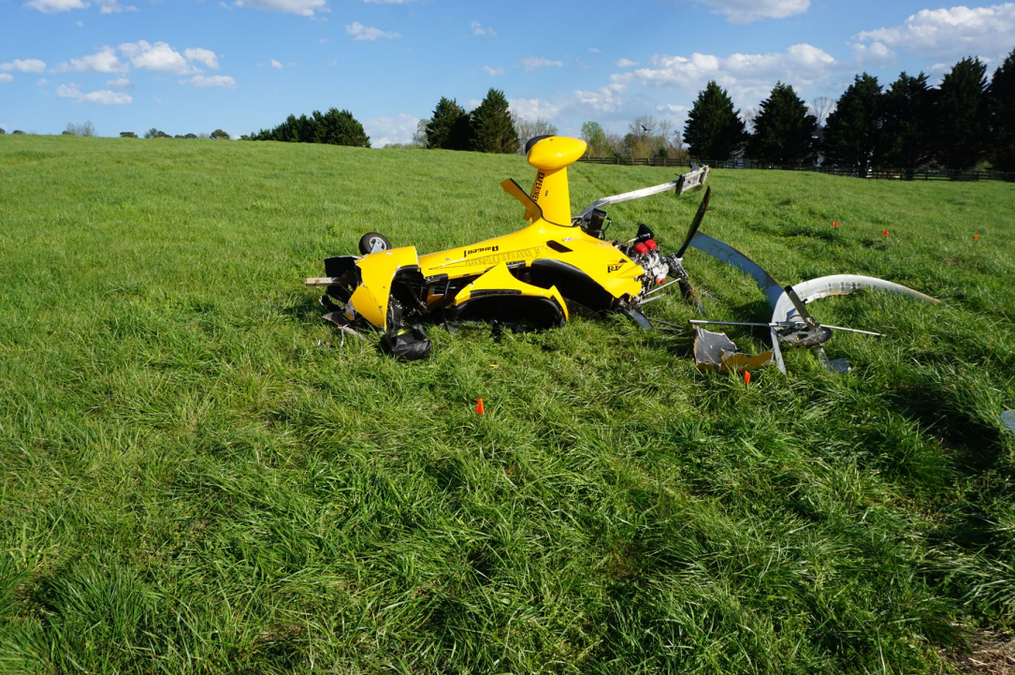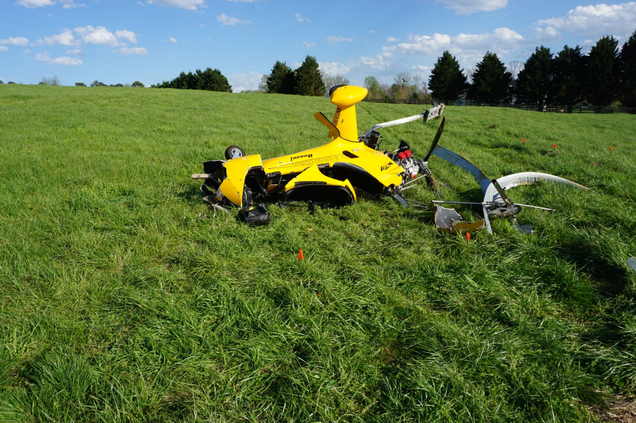Mistarz, owner of Mencom Corp., brought part of his Illinois-based industry to Gainesville 12 years ago, and has since outgrown three buildings.
An industrial printer that sits on top of a meeting table in the conference room of his third Gainesville building — a 15,000-square-foot building in Centennial Industrial Park — is evidence that it is once again time to expand the Gainesville end of Mencom.
"We’re just out of space again," Mistarz said, noting the out-of-place printer.
When he ran out of space in the Centennial Industrial Park building about one year ago, Mistarz decided it was time to consolidate his entire industry and bring the larger Illinois branch down to Gainesville — a move he said would eventually bring 40 to 50 more jobs to the area.
Yet, when he lost out on a contract to purchase the one remaining 28-acre lot in Gainesville’s Industrial Park West, Mistarz realized he may have to take those jobs elsewhere. And though he is prepared to move on, Mistarz said he feels like the city’s nearly 2-month-old decision to award that piece of property to Chris Cowart, owner of Cowart Mulch Products, and Danny Scroggs, was an unethical one and calls it the result of small-town politics in what is becoming a not-so-small town.
When he first realized his building in Centennial Industrial Park was getting too small, Mistarz contacted his Realtor, Lee Hemmer in December, asking him to find enough property for Mencom to consolidate. Hemmer, in turn, contacted Tim Evans, vice president of the Gainesville-Hall Redevelopment Authority, a division of the Greater-Hall Chamber of Commerce that the city pays to find buyers for city-owned industrial properties.
Mistarz then learned of a 28-acre tract of property between Kubota and Continental Tire in Industrial Park West, and Evans and Hemmer began negotiating with the city over the sale.
Previously, Danny Scroggs, owner of the adjacent Chicopee Mills property, had offered between $16,000 and $18,000 an acre for the same property, City Manager Bryan Shuler said.
"We said ‘No.’ That was never going to happen," Shuler said.
When Mistarz became interested in the spot, he was told no one had been interested in the property for at least one year.
"There had not been a contract proposed, and there had been no discussions with them ... when Tim asked me about the availability of the property (on behalf of Mistarz)," Shuler said. "I had not heard from them in probably a year."
However, during the time that Evans and Hemmer were hammering out all the right words in a contract that would give Mencom the 28 acres, another contract for the property landed on Shuler’s desk. The contract was from Scroggs’ partner, Cowart, and offered $22,500 an acre — the same money the city would have gotten from the Mistarz contract.
Mayor Myrtle Figueras, who has been on the council since 1992, said having two nearly identical bids is unusual.
"The same bid hardly ever happens," she said. "There’s usually one that’s lower or one that’s higher."
However, she said she did not feel there had been any back door deal, as Mistarz claimed during the "Citizens Issues" portion of a recent council meeting.
Shuler said he did not know how Cowart and Scroggs got the money and the timing nearly perfect.
"Because we didn’t solicit it," Shuler said. "(The contract) was brought in and left in my office, and I saw it when I came in to work the next day."
Shuler said it was only fair to allow Scroggs and Cowart to present their proposal to the council. The day the council first met to vote on the property sale, Mistarz said he was shocked to find that the vote he was told was only a "formality" was tabled to give Scroggs and Cowart a chance to present their proposal.
And when the two men got their chance to meet with the City Council at a work session, Scroggs offered to donate a water line that he had built to protect his property from fire and an easement for access to the 28 acres from Chicopee Mills.
"I’ve ... signed — I started not to, but I did — an easement and I guess, a fifth of this (water) line to the city," Scroggs told the council. "But if this deal doesn’t go through ... I’m going to get that back, because I have no reason to donate anything to the city if I don’t gain access or gain use of this property here," he said.
Cowart told the council that the city would have access to grant money for housing his business.
Calls to Scroggs and Cowart seeking comment were not returned.
Before he knew it, the property sale that Mistarz had been assured was a near-done deal was no longer in reach, and the City Council voted in a split 3-2 decision to sell the property to Scroggs and Cowart. The majority vote by council members Danny Dunagan, Ruth Bruner and George Wangemann went against a recommendation from Shuler that Mencom was the best fit for the property, a letter from a neighboring property owner who said it did not want a mulching operation as a neighbor and the backing of the city-paid development advisers.
In his capacity as city manager, Shuler made a recommendation to the council as to which company he thought better fit the industrial park in a memo a few days before the vote.
"I think the value of the building and the value of the jobs spoke for itself as far as the Mistarz proposal," Shuler said. "That’s what I said, and I think they all understood when I said that."
Hemmer said the council’s decision to vote for the mulching operation was surprising.
"I don’t know what happened," Hemmer said. "It just seemed to me that they were excited about (Mencom), and you know, the Development Authority was behind us, and the folks that advise the City Council were behind (Mencom) for obvious reasons."
Shuler said his recommendation no longer matters, because the council members voted, and they vote on what they feel is the best decision for the city.
"There’s never a cookbook solution for every issue that comes before the City Council," Shuler said. "There’s judgment you have to make based on the information you’re provided. ... Two people can look at the same issue and come to different conclusions but have valid reasons for their conclusion."
For Bruner, it was Cowart’s promise that the operation would bring grant opportunities that swayed her vote.
"I think it will be a good thing for Gainesville to have that type of company in there to use up some of ... the wood chips and the sticks and the branches that come from construction and clearing land so that we can make them into something useful," Bruner said after she voted. "I think there may be some grant possibilities the city can take advantage of by having that kind of operation in the city."
Yet Dunagan and Wangemann say they voted for the mulching operation, because Scroggs was interested in the property long before Mencom was.
"Sometimes they say first come, first served. ... That’s probably where my judgment came into play," Wangemann said. "I felt that (Scroggs) was the first interest that was shown in the property, so I had to give him first dibs."
And though Figueras says she will live with the rest of the council’s decision to give the property to Cowart Mulch Products, she said Scroggs and Cowart had already had their chance to purchase the property long ago and did not take it. That was one of the reasons she voted against giving the property to Cowart Mulch Products.
"Had (Scroggs) wanted to (buy the property), he would have done it before someone else came and asked," Figueras said.
Figueras also said she supported Mencom’s proposal, because Evans was behind it.
"I trust Tim’s assessment of a business. ... It is his job to find businesses to locate within the city, and I figured he had done all of his research," Figueras said.
Despite voting in contradiction to the Redevelopment Authority, Wangemann and Dunagan both said they hope to leave the rest of industrial park property sales to the authority in the future. The city’s newest industrial park will soon be in the control of the redevelopment authority and Pattillo Construction.
"I just don’t want to get in this situation again," Dunagan said. "I just don’t think it’s something the council needs to be involved in."
Mencom is now looking at properties in unincorporated Hall County and in Lumpkin County. Hemmer says the council’s decision to contradict the development authority’s recommendation was a bad one, saying that if Mencom would have been able to make its home in Industrial Park West, it would have been "a feather in the cap for Gainesville."
Wangemann said only time will tell if he made the best decision to award the property to Cowart Mulch Products. At one point after he cast his vote, Wangemann said he would consider changing his vote if Bruner and Dunagan would agree to change their votes. However, Wangemann said changing his mind could be perceived as a weakness.
"It ... was one of the more difficult decisions I had to make in 21 years on the city council," Wangemann said. "Time will tell whether I made a good decision or whether I’ll regret the decision."




